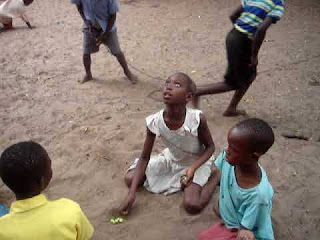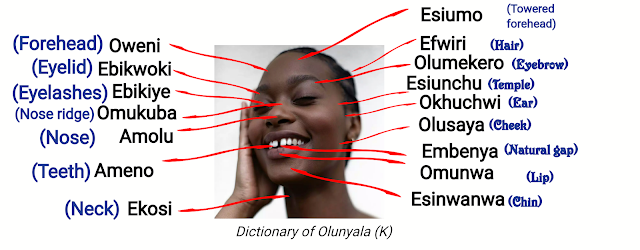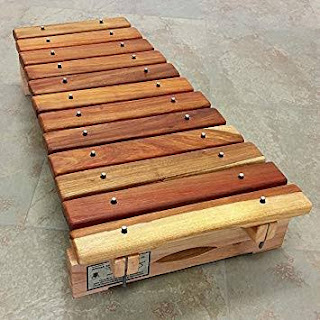ABANYALA BA KAKAMEGA: The Traditional Art of Metalwork
The art of making metallic tools is as old among the Abanyala. The presence of many non borrowed names for metal products in Olunyala is a pointer to a fact that Abanyala embraced the art of working on metals to produce various items at early stage.
The skill of making these items was called okhwichanya. The men who possessed the skills were called Abechanyi. At times, due to the special use of some metallic items in designated cultural ceremonies, the blacksmith was selected and ordained. Those ordaining the person could sing the following song to pass on the position to the heir of the skills:
The blessed metal's workshop was called echumbi. The major source of smouldering fire was logs from a tree called omulaha which were picked by a man. The blacksmith had ready market of farmers, wood artists, hunters, circumcisers, beauty lovers, warriors and builders.
The metals that were used included copper (esikokomo), emindira (gold) that was found in the soils at Ewusitema, bronze (emiri), silver (olusasi), iron (esibia), iron ore (owutare), steel (esyuma), casted iron (esitiiri) and any mix of metals for further processing called (esironde)
Indegenious knowledge of metal tools.
The following are the metal tools authentic to Abanyala ba Kakamega:
After the coming of the white-man, the blacksmith aped some of the factory made metal tools or modified them. Such item were called kirimiti. Some the modern but locally produced tools included the following:
The skill of making these items was called okhwichanya. The men who possessed the skills were called Abechanyi. At times, due to the special use of some metallic items in designated cultural ceremonies, the blacksmith was selected and ordained. Those ordaining the person could sing the following song to pass on the position to the heir of the skills:
Soloist: Omukuba muambe (Be possessed by the bellow)
Chorus: Hamba omukuba (Be possessed)
Soloist: Omukuba muambe (Be possessed)
Chorus: Hamba omukuba omukuba muambe hamba omukuba. (Posses the bellow and let the bellow possess you)
Chorus: Hamba omukuba (Be possessed)
Soloist: Omukuba muambe (Be possessed)
Chorus: Hamba omukuba omukuba muambe hamba omukuba. (Posses the bellow and let the bellow possess you)
The blessed metal's workshop was called echumbi. The major source of smouldering fire was logs from a tree called omulaha which were picked by a man. The blacksmith had ready market of farmers, wood artists, hunters, circumcisers, beauty lovers, warriors and builders.
The metals that were used included copper (esikokomo), emindira (gold) that was found in the soils at Ewusitema, bronze (emiri), silver (olusasi), iron (esibia), iron ore (owutare), steel (esyuma), casted iron (esitiiri) and any mix of metals for further processing called (esironde)
Indegenious knowledge of metal tools.
The following are the metal tools authentic to Abanyala ba Kakamega:
- Amolu ka omukuba- iron end of a bellow. It was metallic to avoid burning out.
- Ebikhuli- dog bells. They were put in hunting dogs to help scare the prey out of their hiding place and to help the hunter trace the dogs' direction.
- Efumo lya amachale- barbed spare. Some called it efumo lya amachwi.
- Efumo lya tombo- narrow sharp edged long spear
- Efumo lia esakha- wide flat headed spear.
- Efumo lya Swakhiri- herding or man's personal spear
- Efumo lya omukasa- ceremonial wide bladed copper spear for leaders.

Lya amachale, lya tombo, lia esakha and lya mukasa. - Efumo lya ekhuli- this was a short stabbing spear with conical end point that was lager. It was hand held and never thrown.
- Efumo lya ebasa- twin end spear used during twin-ceremonies such as birth, death and twin dance.
- Efumo lya wamachari- this was a short stabbing spear but narrow and longer than efumo lya ekhuli. At times used for learning target shooting.
- Ehaywa- axe. Used for cutting trees and splitting firewood.
- Ekhande- skinning or slaughtering knife
- Ekhomako- metallic mallet-like hammer.
- Ekhumba lya esipangalia- big shield with metallic body. It was an improvement on the buffalo and rhimo skinned shields. Used by front runners in wars. For example, it was used by Miriri and Simbuchi during the Nyal- Bakhone war of 1800 AD.
- Embaachi- adze for curving items such as mortar (esiwiri) or wooden jugs (ehachi)
- Embalo- a small tattooing knife or tooth removing knife. It was the shape of a small scythe with side blade and end.
- Embako- weeding jembe with a straight handle used by men. At times it was a term for a new bigger hoe.
- Embanga- this were the pangas. They were used to open up spaces in the forest called embanga hence the name.
- Embeedo- hooked iron hoe used in clearing trenches.
- Empisio- needle used for joining hides.
- Endeke- leg bells for dance which are usually tied on legs.
- Endekwe- anklets for decorative beauty
- Endolio- marbles put in leg-bells or dog-bells.
- Eng'alang'anyi- smooth strapping put on women's wrists.
- Engeso- scythe for harvesting sorghum and millet
- Engeenge- a small triangular jembe-like tool on a straight handle used in harvesting aquatic plant tubers.
- Engong'i- metal ring used for music and dances of amawi.
- Enyimba- Circumcision initiate's bells or jingles
- Enyuma- iron beads worn by royal ladies on waist.
- Esiango- wire for roasting meat, fish or mushroom.
- Esichaki- it was a tool to hold hot metal during blacksmithing
- Esichangi- metallic wedge
- Esicholong'o- stick with club end adorned with metallic spikes club.
- Esikanga- short dagger with a sheath.
- Esikera- small arrow for drawing blood from animals.
- Esikhutu- cow bell. A double bell was also used for music.
- Esikolome- stick with small axe end used as a war weapon
- Esikokhomo- bracelets with multi shaped beads.
- Esikwasi- thin curve sharpened metal used to remove jiggers or deep items that pierce through the skin.
- Esikwero- stick with big smooth metallic end used as a war weapon.
- Esipangalia (epangalia)- small shield that acted as hand guard. It was held inside the big shield and used during combat when enemy was in close fight.

Epangalia - Esipongolio- cylindrical metallic container for holding small treasured items in palace.
- Esisiri- A jembe that has been worn out. At times, it was just made into a small hoe put on a hooked stick to help weed crops planted by broadcasting. Commonly used by women.
- Esitiri- steel bracelet. Usually put on hands. Also used for early handcuffs.
- Esitiri esiochole- casted steel bracelet
- Esitiiri sia efundikho- knotted bracelet
- Esitiiri sia esikhaba- bracelet with skin beads.
- Esitiyo- small shovel.
- Omuloho- specially designed fishing hook with a burb
- Olube- small hoe specifically made for weeding millet. In this case, okhasiri was just an old hoe adapted fir the purpose.
- Olubechero- slasher made same to omwolo but with bend cutting edge.
- Olubia- steel anvil for blacksmithing. It is on it that hot metals were put before being hammered into shapes.
- Olubibo- rake with one bend spike at end.
- Olukembe- circumcision knife
- Olukhayiro- sickle
- Olukhoni- long curved kitchen knife.
- Olukiri- wire for catching birds
- Olumokino- knife for castrating animals.
- Olumwo- small shaving blade (knife)
- Olung'esi- sheathed long sword
- Oluwawu- small smothning knife used like a sandpaper on wooden curving.
- Omubano- common kitchen knife
- Omukasa- copper bracelet
- Omukhupiro/olukhutu- rod in cowbell or jingles
- Omulo- crowbar
- Omuolo- long handled scythe
- Omusa- wide bladed metal hoe for for harvesting cassavas and potatoes.
- Omusakhu- penknife/ hip-knife
- Omutati- war arrow
- Omutati okwa amachale- barbed arrow.
After the coming of the white-man, the blacksmith aped some of the factory made metal tools or modified them. Such item were called kirimiti. Some the modern but locally produced tools included the following:
- Ekorokocho-
- Owuchabi- hinges
- Owupata
- Tatoba- lamp put off by 'touch over' using hand.
- Omunwa- plaugh shears
- Amachango
- Erelwe
- Esikamili
- Ekomakoma- pulley-wheel



Comments
Post a Comment